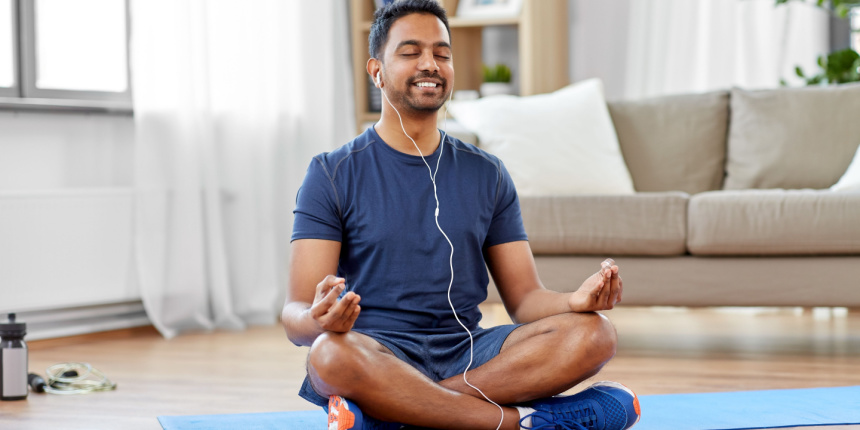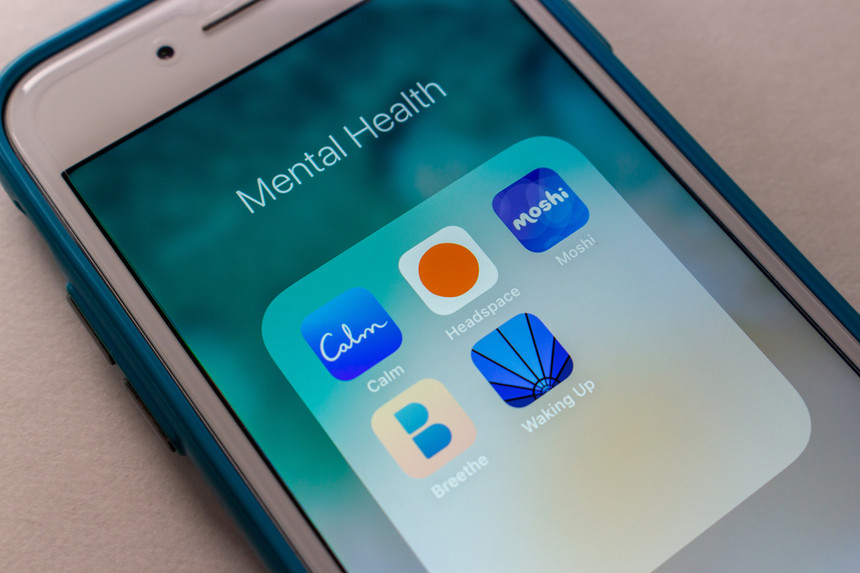5 Mental Health Apps You Should Use For Your Well-Being
The Covid- 19 pandemic showed us a mirror to our existing mental health struggles. Hence, in the recent past, we have come a long way in recognising the importance of mental health and seen a shift in the need for quality services in the field of mental healthcare. Though this was earlier progressing at a snail’s pace, the pandemic acted as a catalyst and has been an eye-opener not only for physical but mental health issues as well. People are recognising the need to seek help and are now more aware about their mental health struggles.

Technology In Mental Health
The pandemic also gave a boost to various services going online, including healthcare. Use of technology and the virtual medium are now turning out to be the biggest tools in bridging the gap between the treatment seekers and providers.
Thus, along with the rise of virtual services, at-home fitness options, and digital therapy, there has been a surge in the number of apps that support mental well-being.
How Do Mental Health Apps Help?
While the benefits of using mental health apps could be many, let us enumerate a few of them:-
Easy Accessibility | The intervention can be accessed anytime and anywhere. For example, you could be having difficulty falling asleep in the middle of the night, or you encounter extreme bouts of anxiety while you’re on your way to school. Having the app in your phone would help you to immediately seek the resources you need.
Save Time And Costs | Mental health apps can be a boon for those who are not comfortable with in-person appointments, and also saves them the travel and waiting time, and the costs. It can be a good first step for those who have been hesitant to seek mental health care in the past.
Anonymity | People can seek treatment options without involving other people or revealing their identity. Most mental health apps ensure privacy and confidentiality.
Affordability | Some of these apps are free or cost less than traditional mental healthcare, which can be a respite to a larger number of users who may not be able to afford conventional in-person services.
Provide To A Bigger Group | Mental health apps can help mental health practioners offer treatment to people in remote areas or to multiple people at once, in times of sudden need (e.g., following a natural disaster or terror attack).
 Mental Health Apps Are Not A Replacement Or Substitute For Mental Health Professional Services
Mental Health Apps Are Not A Replacement Or Substitute For Mental Health Professional Services
5 Mental Health Apps To Use
Let us now look at five mental health apps that you may download on your phones and use as a handy resource. All of these can be easily found on Google Play Store.
Headspace
Headspace is part of Headspace Health, the world’s most accessible, comprehensive provider of mental health and well-being care. Headspace Health provides access to meditation, mindfulness, coaching, therapy, and psychiatry to their members and partner corporate employees. According to their website, the app has proven to reduce stress by 14% in just 10 days. It can also help you relax your mind in minutes, improve focus, and get a healthy sleep. Link to the app
Moodfit
Moodfit is based on the concept that there is a relationship between your thoughts, feelings and behaviors. That is, what you think influences what you feel (your emotions), which, in turn, influences your behaviors, and that there is a relationship between each of these that can go in either direction. For example, your thoughts can influence your behaviors and your behaviors can influence your thoughts. The key tools used here are mood and gratitude journaling, breathing exercises, mindfulness meditation and CBT thought records.
Amaha (InnerHour): Self-Care
Built by trained psychologists and licensed psychiatrists, InnerHour claims to be a one-stop solution for everything mental health. This is a useful app for someone who is not feeling like themselves, struggling with depression, stress, anxiety, or sleep. The app provides self-help tools like goal tracker, mood tracer, and specialised mental health courses to sleep better, manage anger, tackle stress, overcome depression, beat anxiety, and care for yourself.
YourDOST
The YourDOST app helps you seek that support via a live anonymous chat or an appointment for an audio or video session with an expert of your choice. They provide counselling servies on various issues like relationships, career, sexual wellness, self-imporvement etc. They have collaborated with many leading universities and companies to provide their services at affordable costs.
I Am - Daily Affirmations
This app focuses on affirmations and well-being. Daily affirmations help rewire our brains, build self-esteem and change negative thought patterns. The app offers verbal affirmations where you can choose from many daily intentions and set reminders to be delivered throughout the day. Not only do positive affirmations help bring major shifts in one’s mindset, they also serve as prompts and daily reminders about what one is truly capable of. The more you strengthen this connection, the more resilient you will be when faced with difficult or challenging circumstances.
Things To Keep In Mind
A few things that you should keep in mind while using mental health apps are:-
- These apps not a replacement or substitute for mental health professional services
- Beware of fake apps – check user reviews, ratings, and feedback before using them
- Use these apps only as additional support and seek proper, expert help, if needed
Sanskriti Khera is a Counselling Psychologist, with five years of hands-on experience in helping young adults navigate through social and emotional concerns. Her approach to counselling is person-centered, trauma-informed, and insight-oriented. She was formerly Counsellor at the Ashoka Centre For Well-Being, Ashoka University, Sonepat. Currently, she is Consultant with Daffodils Therapy Studio, New Delhi.
Applications for Admissions are open.
As per latest syllabus. Physics formulas, equations, & laws of class 11 & 12th chapters
JEE Main Important Chemistry formulas
Get nowAs per latest syllabus. Chemistry formulas, equations, & laws of class 11 & 12th chapters
JEE Main high scoring chapters and topics
Get nowAs per latest 2024 syllabus. Study 40% syllabus and score upto 100% marks in JEE
JEE Main Important Mathematics Formulas
Get nowAs per latest syllabus. Maths formulas, equations, & theorems of class 11 & 12th chapters
